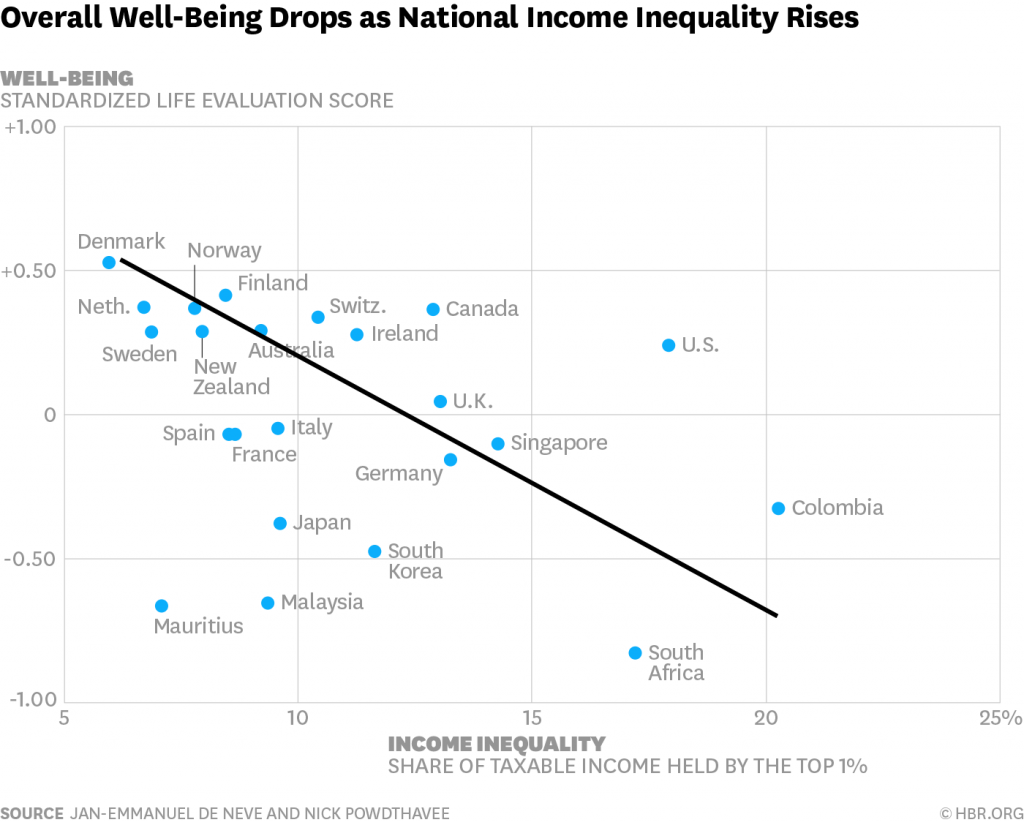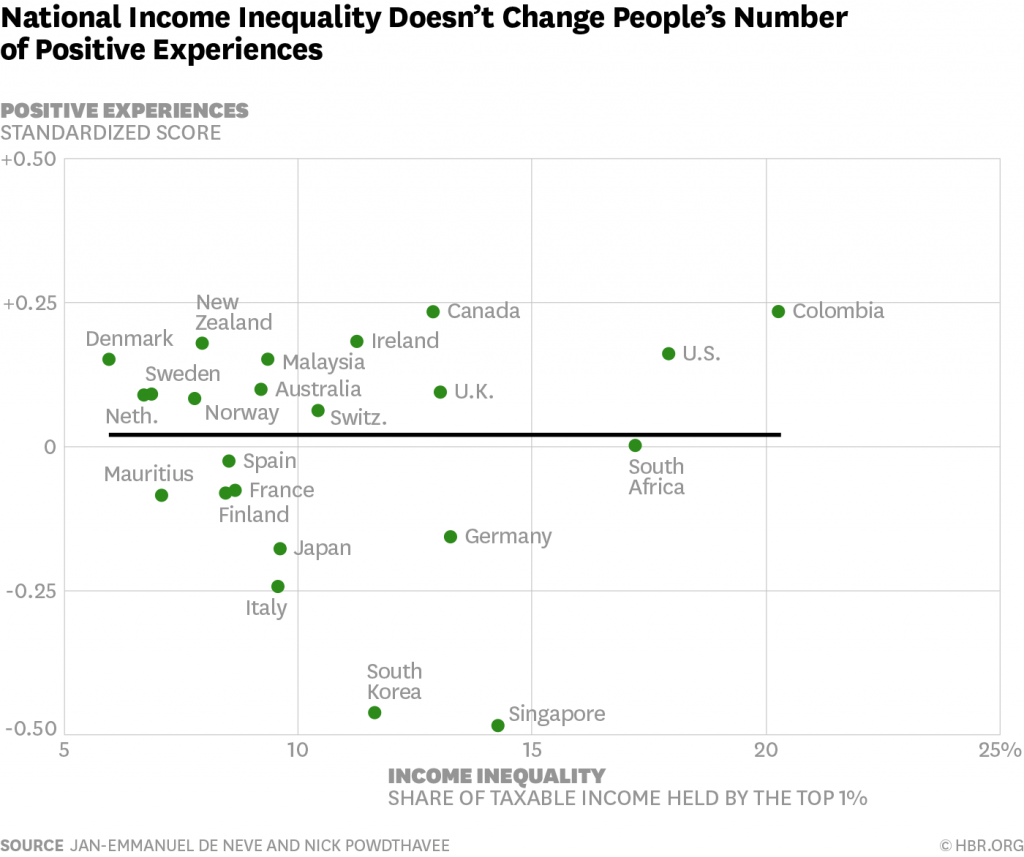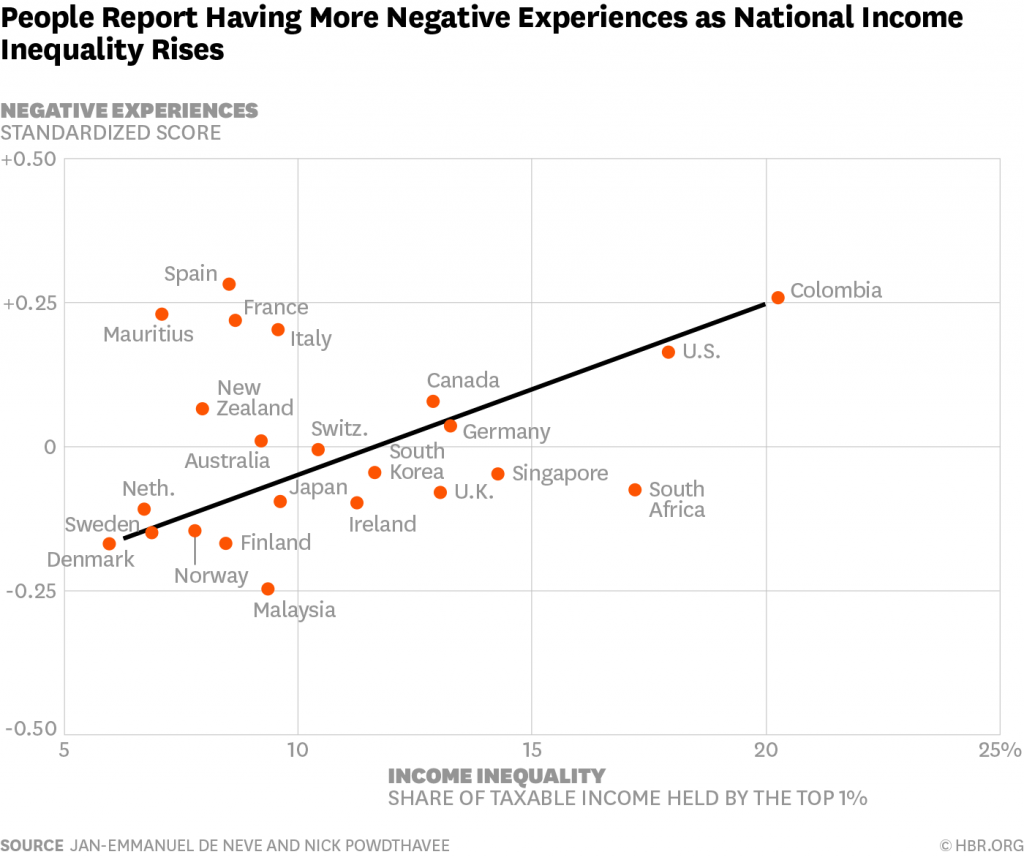Most talk of income inequality focuses on the problems of the very poor or the broader socioeconomic implications of rising inequality. What is less well-known is that income inequality makes us all less happy with our lives, even if we’re relatively well-off.
We examined data from the Gallup World Poll and the World Top Incomes Database and found that the more income is concentrated in the hands of a few, the more likely individuals are to report lower levels of life satisfaction and more negative daily emotional experiences. That is, the higher the share of national income that is held by the top 1%, the lower the overall well-being of the general population. Specifically, we found that a 1% increase in the share of taxable income held by the top 1% hurts life satisfaction as much as a 1.4% increase in the country-level unemployment rate.

Here’s why we think this effect occurs: As the very rich get richer, they extend the range of the income distribution. In a practical sense, that means even if you are a member of the relatively well-to-do middle class, some things start getting priced beyond your reach, such as private schools and houses in the best neighborhoods. There might also be a psychological reason for the effect: an increase in the share of income held by the richest 1% can make you feel as if your chance of moving up the ladder and becoming very rich yourself is growing increasingly beyond your reach.
This research builds on some earlier, seminal research on how much money we need to make us happy. A 2010 paper by psychologist Daniel Kahneman and economist Angus Deaton, both Nobel laureates, calculated that day-to-day happiness peaks at an income of $75,000 a year, after which it plateaus. (At the time the data was collected in 2009, the median household income in the U.S. was $49,777, and the mean was $67,976.) This study also emphasized an important distinction between life satisfaction (how we generally evaluate our lives) and day-to-day emotions (how we experience our lives in the moment). It found that measures of life satisfaction were sensitive to socioeconomic factors such as a person’s income level and employment status, whereas measures of emotional well-being were more sensitive to how people spend their time, such as commuting or caring for others.
We followed the same distinctions in our study of income inequality and found an interesting wrinkle. While life satisfaction was negatively related to increased income inequality, we did not find a relationship between positive emotional well-being and inequality at the very top of the income distribution. This is probably because the things that make up positive emotional experiences have little to do with income and rank.

But the flip side of daily positive emotional experiences are negative emotional experiences — and we did find that these rise along with the incomes of the top 1%. In societies where the richest hold most of the country’s income, people were more likely to report feeling feeling “stressed,” “worried,” or “angry” on the day before the survey.

So, on aggregate, as the incomes of the 1% pull away from those of the rest, people’s overall life satisfaction is lower and their day-to-day negative emotional experiences are greater in number. The effects at work alone are numerous: other research has shown that unhappy workers tend to be less productive; studies have also found that unhappy workers are more likely to take longer sick leaves, as well as to quit their jobs.
Since our evidence is at the country level, there are obvious implications here for economists and policy makers. But corporate leaders also would do well to consider the possible implications for pay and compensation policies in the microcosms of their organizations, where executive salaries are now as much as 200 times what median workers earn. –https://hbr.org/2016/01/income-inequality-makes-whole-countries-less-happy?utm_source=twitter&utm_medium=social&utm_campaign=harvardbiz